Description
ABSTRACT
Incapacitation of Incorporated Trustees and Governance of Churches and NGOs in Nigeria: A Commentary of Omomobi v Adeoye
Idowu Akinloye
INTRODUCTION
This discussion will evaluate the effects of the incapacitation of incorporated trustees registered under the Nigerian Companies and Allied Matters Act1 (CAMA) on the legal status and governance of churches and civil society organisations. The discussion will focus on the unreported case of Omomobi & Ors v Adeoye & Ors2 (Omomobi’s case) which came before the Federal High Court sitting at Abuja. The court considered, in the case, the competence of a church to sue in its corporate name in a circumstance where the incorporated trustees of the church have become incapacitated to constitute a quorum due to their depletion. Several other issues were also raised in the case including the locus standi to sue, the validity of a sale of church’s property by persons that are not incorporated trustees of an organisation, the validity of opening and operating a church account without the consent of church leaders and members, among other issues.
In recent time, a number of Nigerian leading churches and civil society organisations have been at the centre of many legal disputes arising from the nature of their legal status and governance.3 These disputes have clearly resulted in some economic and reputational losses to these institutions. This increase in legal disputes thus calls to question, the efficacy of the governance mechanisms and functioning of these institutions.
It is against the backdrop of the increased disputes and its implications for the institutions that this comment will focus primarily on the examination of the effects that the incapacitation of incorporated trustees may have on the governance and administration of a church and civil society organisation, and the legal risks that it may expose them to. The discussion will illustrate that due to various reasons, the depletion of incorporated trustees may become inevitable. Consequently, these institutions need to put in place and also follow proper structures to deal with incapacitation or nonfunctionality of their incorporated trustees in order to avoid legal risks and the attendant loss that may arise from it. The discussion will conclude with some recommendations to churches and civil society organisations in this regard.
BRIEF FACTS OF OMOMOBI’S CASE
The facts of the case are that on 1 December 1990, the Cherubim and Seraphim Unity Church of Zion (the Church) located in Abuja, registered twelve trustees with the Corporate Affairs Commission (CAC) under the provisions of CAMA. By virtue of the registration, the trustees became a corporate entity and were responsible for the management of the property of the church. In 1995, the church acquired a parcel of land situate at Plot No. 1.5, Cadastral Zone 07-07, Sabon-Lugbe, Abuja (the land).
* LL.M, BL. Doctoral Candidate, Faculty of Law, Rhodes University, Grahamstown, South Africa, and Lecturer Ajayi Crowther University, Oyo, Nigeria.
1. Companies and Allied Matters Act, Cap. C20, Laws of the Federation of Nigeria 2004.
2. Suit No: FCT/ABJ/CS/1111/07.
3. See, for example, the cases of Dairo v The Registered Trustees of the Anglican Diocese of Lagos (2017) LPELR 42573 (SC) involving the Anglican Church; Revd Prof. Paul Emeka v Rev Dr. Chidi Okoroafor & 18 Ors (2017) LPELR 41738 (SC) involving the Assemblies of God Church, Nigeria; The Registered Trustees of Four Square Gospel Church in Nigeria v Revd Isaac Adeyemi (Suit No. NICN/LA/599/2014) involving the Four Square Gospel Church in Nigeria; Ekwezor v Registered Trustees of Saviours Apostolic Church of Nigeria (2014) LPELR 23572 (CA); Joseph Ebhodaghe v Deeper life Christian Life Ministry (2016) LPELR 40582 CA, among other lawsuits.

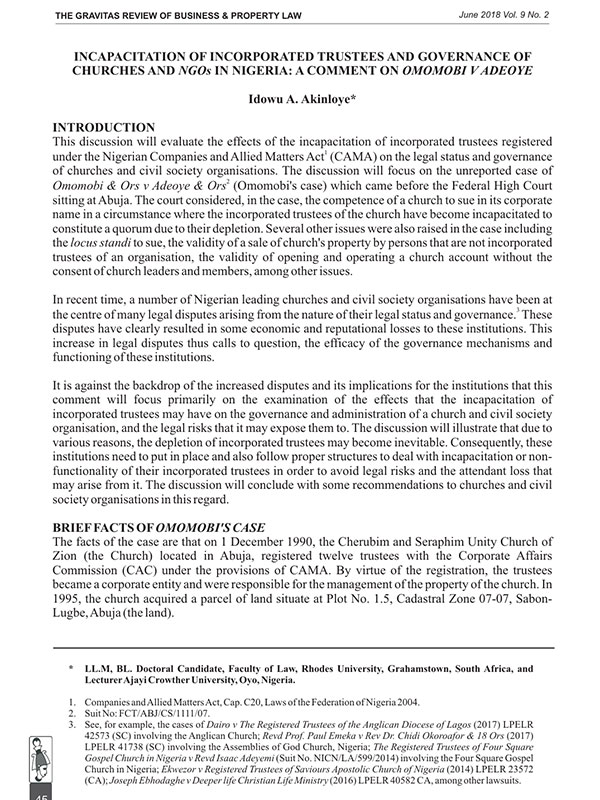
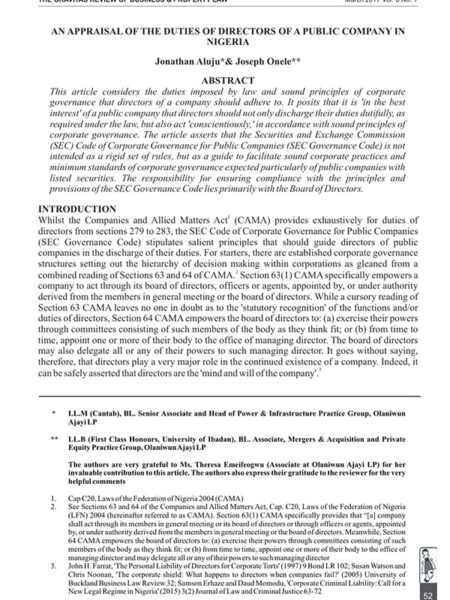
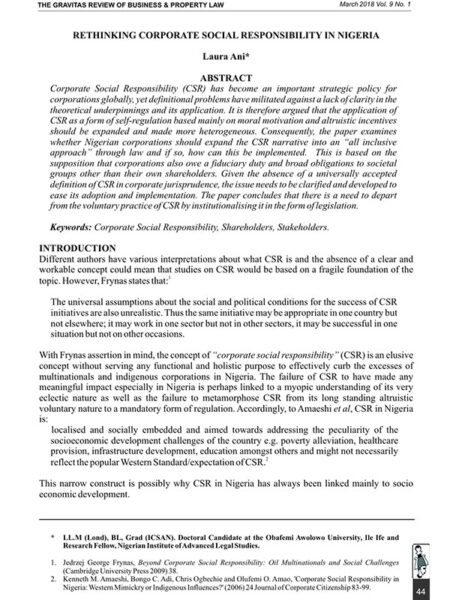
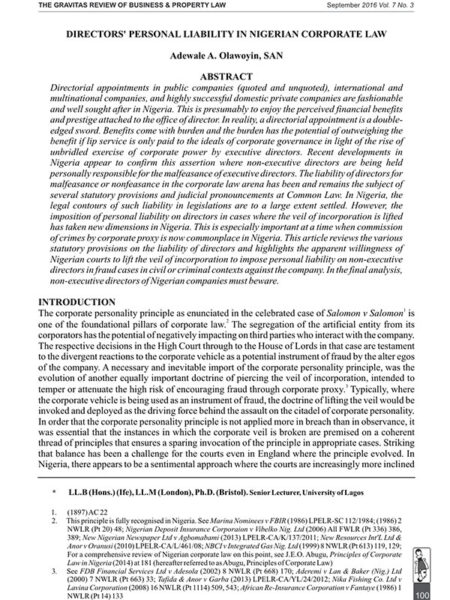
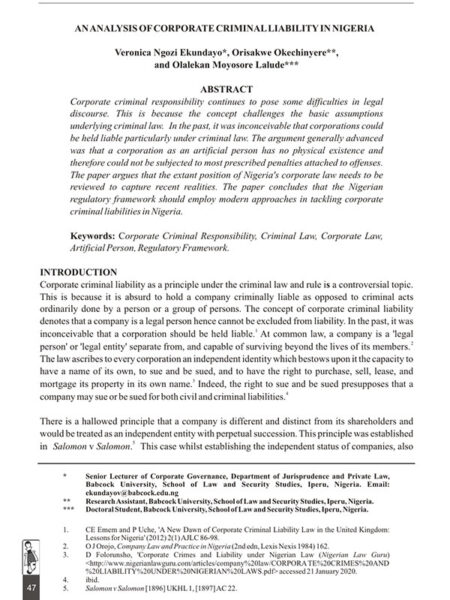


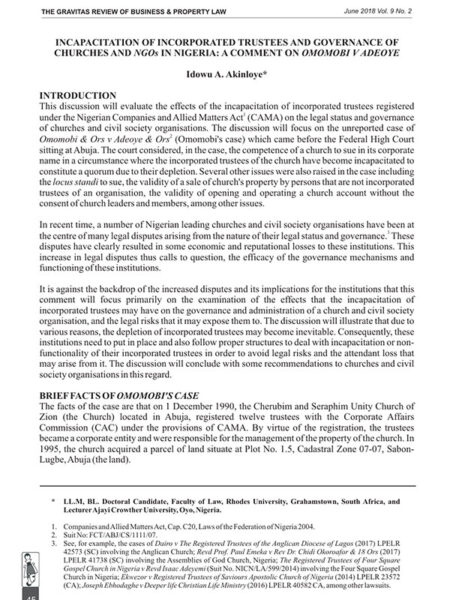
Reviews
There are no reviews yet.